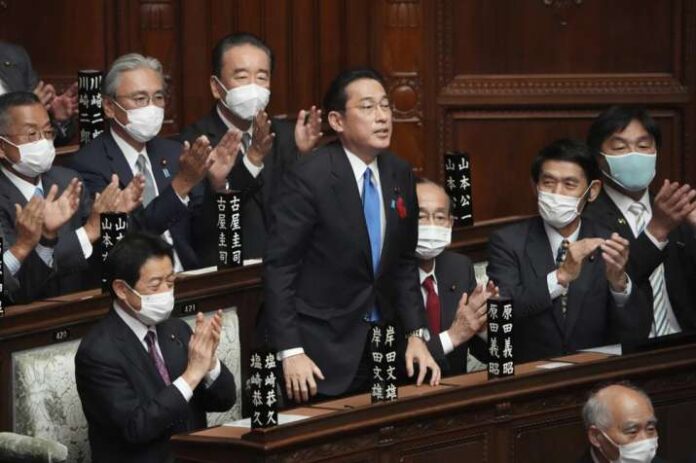
| Translate This News In |
|---|
Fumio Kishida was elected as Japan’s new prime minister on Monday, and will be charged with promptly addressing the epidemic and security concerns ahead of a national election.
Yoshihide Suga, who resigned with his Cabinet earlier in the day, is replaced by Kishida. At a palace ceremony later Monday, Kishida and his Cabinet will be sworn in.
After witnessing his popularity plummet as a result of his government’s handling of the epidemic and determination on holding the Olympics while the virus spread, Suga resigned after only one year in office.
Kishida, a former foreign minister, was known as a dovish moderate before turning aggressive to appease influential conservatives in the party. He is deeply rooted in the conservative establishment, and his win in the party election was based on a preference for stability and continuity over change.
According to Japanese media, all but two of Suga’s 20 Cabinet positions would be filled, with 13 of them being appointed to ministerial positions for the first time. The majority of the positions were given to significant groups who supported Kishida in the party election. Only three women are said to be included, compared to two in Suga’s administration.
Foreign Minister Toshimitsu Motegi and Defense Minister Nobuo Kishi will remain in their positions, ensuring continuity in Japan’s diplomacy and security policies as the country seeks to work closely with Washington under the bilateral security pact in the face of China’s rise and rising tensions in the region, including around Taiwan.
To oppose China and nuclear-armed North Korea, Kishida advocates deeper Japan-US security relations and collaborations with other like-minded democracies in Asia, Europe, and the United Kingdom.
North Korea, which test-fired ballistic missiles capable of hitting targets in Japan last month, is posing a rising nuclear and missile threat to Japan. Even after striking a 2015 agreement with Seoul to address a conflict over the issue of women sexually molested by Japan’s military during World War II, Kishida faces deteriorating ties with fellow US ally South Korea over history problems.
He’ll also have to make sure that Japan’s health-care systems, vaccination programme, and other virus-prevention measures are in place in case COVID-19 resurfaces in the winter, all while gradually restoring social and economic activities.
The economy, according to Kishida, will be his first focus. Kishida’s “new capitalism” is mainly a continuation of Abe’s policy in terms of economics. He wants to increase more people’s income and start a distribution and growth cycle.
Kishida, a third-generation politician, was elected to Parliament for the first time in 1993, representing Hiroshima, and is a proponent of nuclear disarmament. During his 2016 visit to the city, he led former President Barack Obama, who, along with Nagasaki, was destroyed in atomic bombings by the United States in the last days of World War II.

















